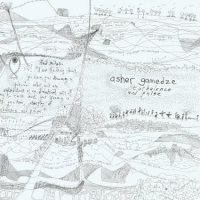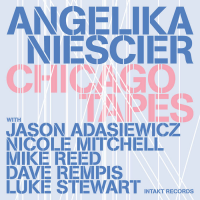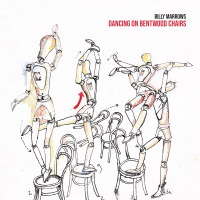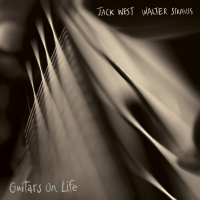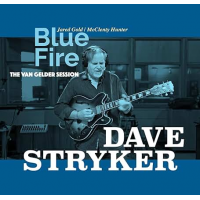Home » Jazz Articles » Multiple Reviews » The New York Art Quartet and the Noah Howard Quartet on...
The New York Art Quartet and the Noah Howard Quartet on Ezz-thetics
 The New York Art Quartet
The New York Art Quartet ezz-thetics Revisited series
2023 The seeds of the New York Art Quartet (NYAQ) were sown in late 1963 when saxophonist John Tchicai—then a member of New York Contemporary Five (NYCF)—had a one-off gig at a Midtown restaurant. Trombonist Roswell Rudd, who was there on the recommendation of Don Cherry, was impressed by what he saw, so he and Tchicai began playing together. Eventually, after NYCF broke up, they formed NYAQ with bassist Lewis Worrell and drummer Milford Graves.
In November 1964, the quartet recorded their eponymous debut recording for ESP Disk, which comprises the first four tracks of Revisited. One of the pieces was written by Tchicai, the other three by Rudd, although half of one of those was a poem by LeRoi Jones {a.k.a. Amiri Baraka) who recited it himself. The release of the album was delayed because of the Jazz Composers Guild's boycott of record companies; by then Worrell had moved on, to be replaced by Reggie Workman. The new line-up recorded the album Mohawk for Fontana in July 1965; five of that album's seven tracks complete Revisited. Of those five, two were Rudd compositions, one by Tchicai, plus Charlie Parker's "Mohawk" and the pop standard "Everything Happens to Me."
All things considered, NYAQ were as innovative in their way as other ensembles which were better known and more praised by critics. In line with quartets such as Ornette Coleman's, NYAQ had no piano or other harmonic instrument so they were able to roam free. NYAQ's saxophone and trombone combination was at odds with Coleman and other groups' sax and trumpet front line, with Rudd avoiding bop cliches while complementing Tchicai's fluid soling. Bass and drums do not act solely as time-keepers but are dynamic driving forces throughout. NYAQ broke up in February 1966, which seems premature given the quality of the music on their two albums. On this evidence, history will be kind to this quartet.
 Noah Howard
Noah Howard Quartet To At Judson Hall Revisited
ezz-thetics Revisited series
2023
If NYAQ were under-appreciated because the quartet split up too soon, in the case of Noah Howard it is more likely he missed out because he arrived rather too late. His first album, Noah Howard Quartet (ESP Disk, 1966), was recorded in January 1966, when Howard was 22, and was released later that year, a considerable time after such revolutionary free jazz classics as Eric Dolphy's
Fortunately, in October 1966 ESP Disk had the good sense to record a six-member Noah Howard group live in concert at Judson Hall in New York City, with trumpet, piano, cello, double bass and percussion joining Howard's alto saxophone. With two extended pieces totalling over 36 minutes, the music was a considerable improvement on the debut album, notably Dave Burrell's piano which underpinned the ensemble. As before, the compositions were by Howard, with "Homage to Coltrane" being particularly poignant and more structured than his earlier work. For some reason, the live album was not released until 1968.
The two albums which comprise this release document the beginning of Howard's career which was to continue until his death in 2010. They make a good introduction to his music but are not his finest work. We must hope that ezz-thetics manage to release further instalments of Howard's story, commencing with the scarce but much-praised The Black Ark (Freedom, 1972).
Tracks and Personnel
RevisitedTracks: Short; Sweet / Black Dada Nihilismus; Rosmosis; No. 6 ; Rufus 3rd; Mohawk; Banging on the White House Door; No. 6; Everything Happens to Me.
Personnel: Player Name: Roswell Rudd: trombone; John Tchicai: alto saxophone; Lewis Worrell: double bass (1-4); Milford Graves; percussion; LeRoi Jones: recitation (2); Reggie Workman: double bass (5-9).
Quartet To At Judson Hall Revisited
Tracks: Henry's Street; Apotheosis; Apotheosis Extension 1; And About Love; This Place Called Earth; Homage to Coltrane.
Personnel: Noah Howard: alto saxophone; Ric Colbeck: trumpet; Scotty Holt: double bass (1-4); Dave Grant: percussion (1-4); Dave Burrell: piano (5-6); Catherine Norris: cello (5-6); Norris "Sirone" Jones: double bass (5-6); Bobby Kapp: percussion (5-6).
Tags
Multiple Reviews
John Eyles
Ezz-Thetics
John Tchicai
Roswell Rudd
Don Cherry
Lewis Worrell
Milford Graves
Noah Howard
About New York Art Quartet
Instrument: Band / ensemble / orchestra
PREVIOUS / NEXT
Support All About Jazz
 All About Jazz has been a pillar of jazz since 1995, championing it as an art form and, more importantly, supporting the musicians who make it. Our enduring commitment has made "AAJ" one of the most culturally important websites of its kind, read by hundreds of thousands of fans, musicians and industry figures every month.
All About Jazz has been a pillar of jazz since 1995, championing it as an art form and, more importantly, supporting the musicians who make it. Our enduring commitment has made "AAJ" one of the most culturally important websites of its kind, read by hundreds of thousands of fans, musicians and industry figures every month.




